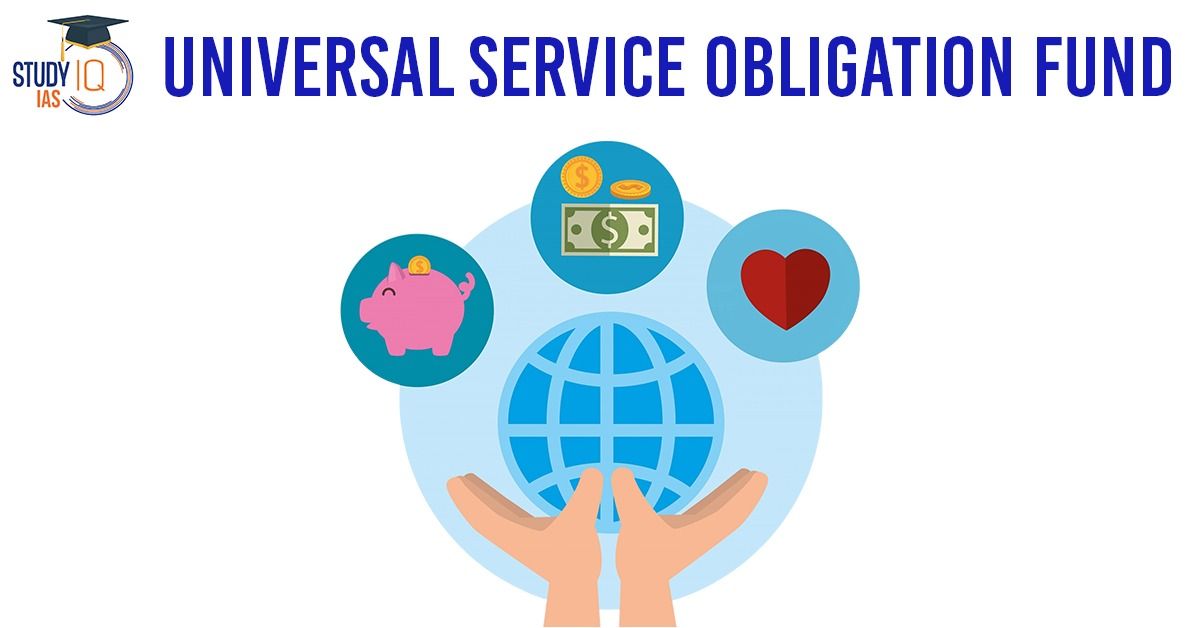Table of Contents
The Universal Service Obligation Fund (USOF), established in 2002 under the Indian Telegraph Act, of 1885, is a pivotal initiative by the Government of India. Its primary objective is to expand telecommunications services and bridge the digital divide, particularly in rural and remote areas. In recent years, the USOF has been rebranded as the Digital Bharat Nidhi (DBN), reflecting the nation’s commitment to promoting equitable access to digital infrastructure and services.
Key Features of the Universal Service Obligation Fund (USOF)
1. Funding Mechanism
The USOF is financed through the Universal Service Levy (USL), which is a fixed percentage of the Adjusted Gross Revenue (AGR) generated by telecom operators. This steady financial inflow ensures sustained investment in projects aimed at underserved regions.
2. Objectives
- Affordable Access: Making telecommunications services available at reasonable rates.
- Bridging the Digital Divide: Reducing connectivity disparities between rural and urban regions.
- Promoting Economic Growth: Enabling digital inclusion to empower underserved communities.
3. Administration
The USOF operates under the supervision of an Administrator, appointed by the Central Government, and functions as an attached office of the Department of Telecommunications (DoT) under the Ministry of Communications.
4. Major Projects
The USOF has launched several significant initiatives to enhance digital connectivity:
- Village Public Terminals (VPTs): Establishing public telecommunication access points in rural areas.
- Satellite Bandwidth Augmentation: Providing enhanced connectivity to remote regions like the Lakshadweep Islands.
- BharatNet Project: Extending high-speed broadband to 2.5 lakh gram panchayats, a cornerstone of India’s Digital India mission.
Significance of USOF
The USOF has played a critical role in:
- Reducing Digital Inequality: Facilitating connectivity in geographically isolated and economically disadvantaged regions.
- Empowering Communities: Enabling access to e-governance, education, telemedicine, and financial services.
- Strengthening Infrastructure: Supporting long-term goals of creating robust digital networks to foster innovation and growth.
Rebranding as Digital Bharat Nidhi (DBN)
The transition from USOF to DBN signifies the government’s renewed focus on digital empowerment. The DBN aims to extend the benefits of the digital revolution to every corner of the country, aligning with the broader vision of Digital India.
Conclusion
The Universal Service Obligation Fund (USOF) has been instrumental in shaping India’s digital landscape by ensuring connectivity for the most marginalized sections of society. Its rebranding as the Digital Bharat Nidhi (DBN) reinforces the government’s commitment to building a digitally inclusive and empowered nation. By addressing the needs of rural and remote areas, the USOF/DBN lays a strong foundation for sustainable development and socio-economic progress in India.


 Topological Materials: The Future of Qua...
Topological Materials: The Future of Qua...
 China’s Deep Sea Station in South Chin...
China’s Deep Sea Station in South Chin...
 Project ICE-CRUNCH: India-Switzerland Co...
Project ICE-CRUNCH: India-Switzerland Co...





















